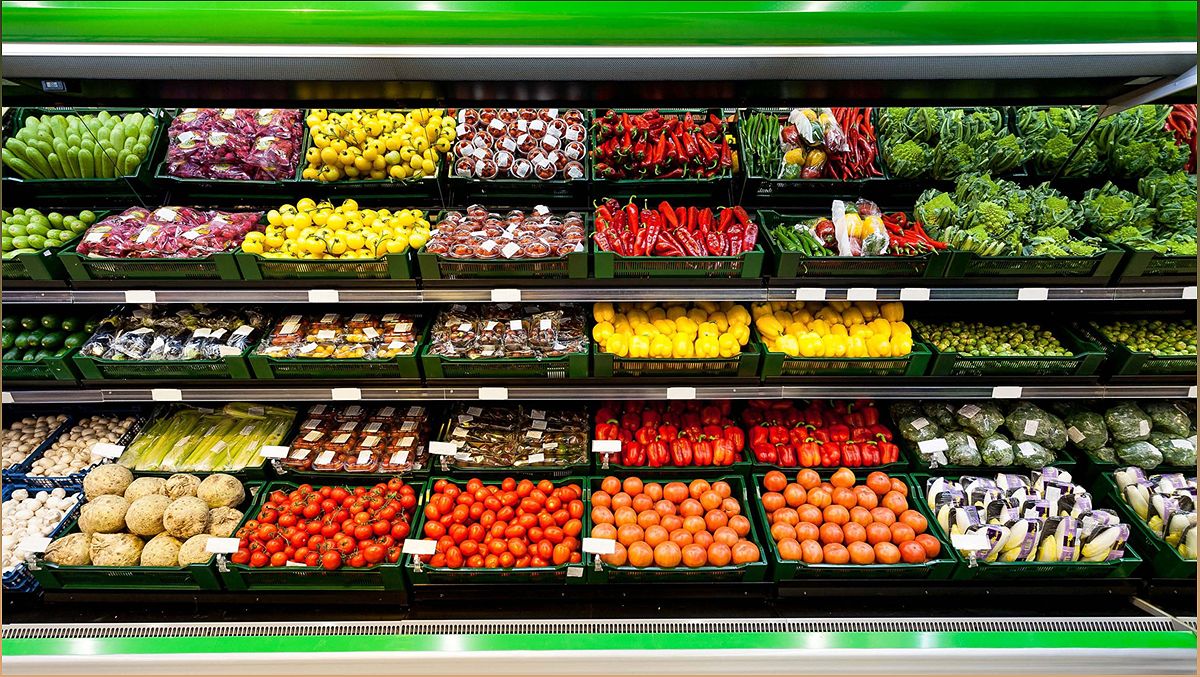Discover the truth about organic food and its health benefits. A review of 237 studies reveals no significant differences in nutrient content or health benefits between organic and conventional foods. Find out why the belief that organic food is healthier or safer is not supported by reliable evidence.
Debunking the Myths: Is Organic Food Really Better for Us?
There has been a long-standing debate about whether organic food is truly better for our health. Many people believe that organic food, grown without synthetic chemicals, is healthier than conventionally grown food. However, according to Harvard researcher Robert Paarlberg, there is no reliable evidence to support this claim.

( Credit to: News )
In a review conducted by the Center for Health Policy at Stanford University, data from 237 studies were analyzed to determine if there were any significant differences in nutrient content or health benefits between organic and conventional foods. The conclusion was clear: there were no convincing differences. This means that organic foods are not necessarily more nutritious or safer to eat.

( Credit to: News )
One of the main arguments for choosing organic food is the belief that it is free from pesticide residues. However, the use of pesticides in conventional farming is now highly regulated, with insecticide use being 82 percent lower than it was in 1972. Additionally, produce in supermarkets is washed to remove nearly all of the chemical residues that might remain. In a survey conducted by the USDA in 2021, it was found that over 99 percent of food samples tested had pesticide residues safely below EPA’s tolerance levels.
The Truth about Organic Food and Pesticide Residues
One of the main concerns about conventionally grown food is the use of pesticides. However, it is important to note that the use of pesticides in conventional farming is highly regulated and has significantly decreased over the years. In fact, insecticide use is now 82 percent lower than it was in 1972. Additionally, produce in supermarkets undergoes washing to remove most of the chemical residues that might remain.

( Credit to: News )
In a survey conducted by the USDA in 2021, it was found that over 99 percent of food samples tested had pesticide residues safely below EPA’s tolerance levels. This means that the pesticide residues in conventionally grown food are well within safe limits and do not pose a significant risk to our health.

( Credit to: News )
While organic food is often touted as being free from pesticide residues, it is important to note that organic farmers are allowed to use certain approved pesticides. These pesticides are derived from natural sources and are considered to be safer than synthetic pesticides. However, they are still pesticides and can leave residues on organic produce.
The Reality of Organic Farming and Commercialization
There is a common misconception that organic food primarily comes from small local farms. However, the reality is that the majority of organic sales in the U.S. are made by corporate conglomerates like ConAgra, H.J. Heinz, and Kellogg. The biggest retailers of organic foods are Walmart, Costco, and Kroger. Only 8 percent of organic sales in 2014 were made by small farmers through farmers markets or community supported agriculture.

( Credit to: News )
The low percentage of organic sales from small farmers can be attributed to the fact that most commercial farmers, both large and small, prefer to use synthetic nitrogen fertilizer. This means that they cannot be certified as organic. Less than 1 percent of harvested cropland in America is certified organic. Synthetic nitrogen fertilizer is crucial for increasing food production to meet the demands of today’s population. Without it, it is estimated that 40 percent of the increased food production would not have been possible.

( Credit to: News )
While it may be tempting to believe that organic food is more “natural” and therefore better for the environment, safer to eat, and supportive of small local farms, the evidence does not support these claims. In fact, organic yields are lower, which would require more land to produce the same amount of food, leading to reduced wildlife habitat and environmental damage.
Making Informed Decisions: The Science Behind Organic Food
It is important to make informed decisions based on scientific research rather than relying on intuition or marketing claims. The science does not favor organic food as being inherently better for us. The belief that organic food is healthier or safer is not supported by reliable evidence.

( Credit to: News )
Organic food and conventionally grown food have similar nutrient content and health benefits. The use of pesticides in conventional farming is highly regulated, and the pesticide residues in conventionally grown food are well within safe limits. Organic farming, while often associated with small local farms, is primarily driven by corporate conglomerates.

( Credit to: News )
While organic farming has its merits, such as the use of natural pesticides and lower synthetic nitrogen fertilizer use, it is not a one-size-fits-all solution. Sustainable agriculture practices can be implemented in both organic and conventional farming to minimize environmental impact and ensure the production of safe and nutritious food.
In conclusion, the science does not support the notion that organic food is inherently better for us. It is essential to consider the evidence and make informed choices about the food we consume, keeping in mind the overall sustainability and safety of our food system.
